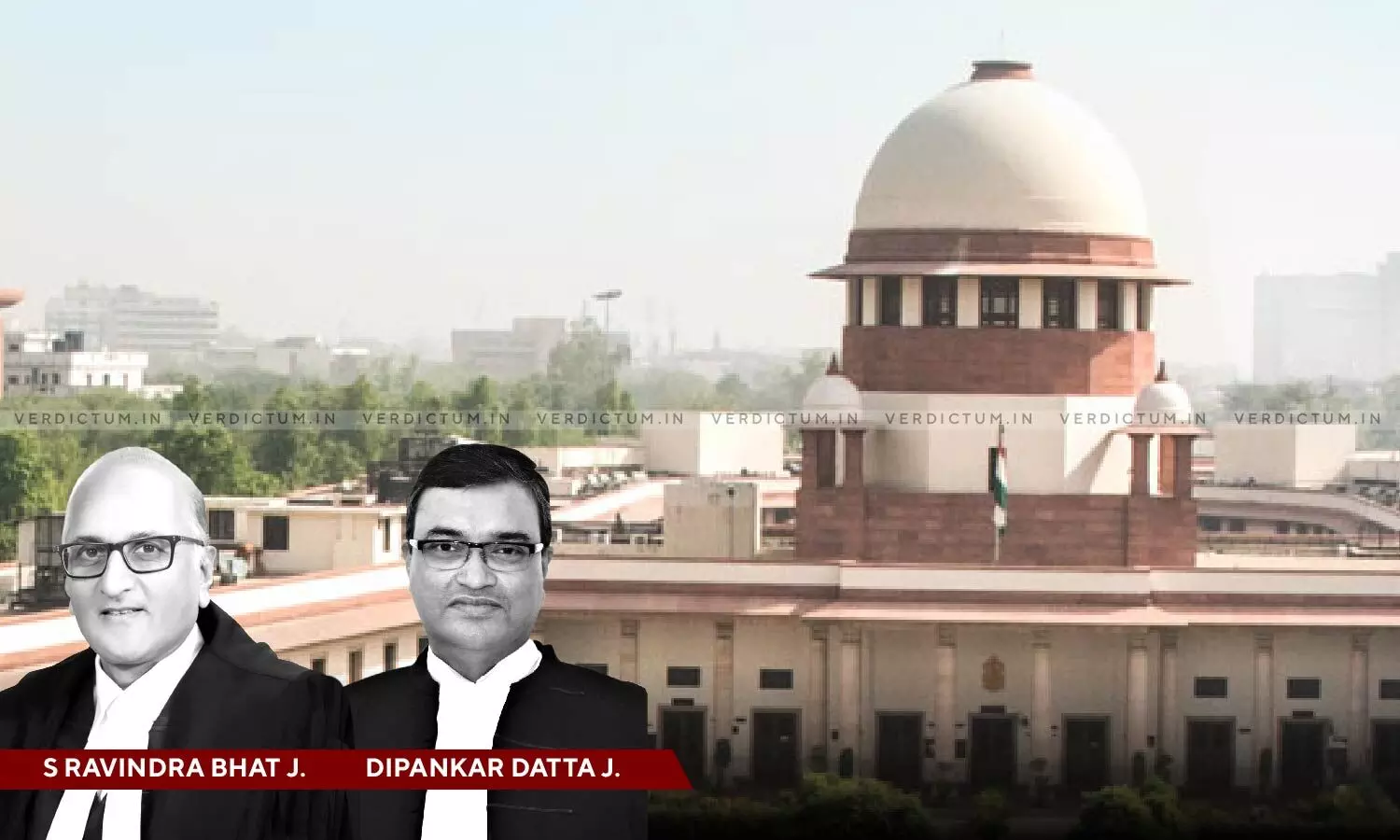
Wisdom, Unwisdom And Soundness Of Reasons Or Their Sufficiency Cannot Be Proper Subject Matters Of Judicial Review: SC
 |
|The Supreme Court has held that judicial scrutiny can also extend to consideration of legality and bona fides of the decision and that the wisdom or unwisdom, and the soundness of reasons, or their sufficiency, cannot be proper subject matters of judicial review.
The two-Judge Bench comprising Justice S. Ravindra Bhat and Justice Dipankar Datta observed, “Once it is recognized that it is the executive’s exclusive domain, in fiscal and economic matters to determine the nature of classification, the extent of levy to be imposed, and the factors relevant for either granting, refusing or amending exemptions, the role of the court is confined to decide if its decision is backed by reasons, germane, and not irrelevant to the matter. Judicial scrutiny can also extend to consideration of legality, and bona fides of the decision. The wisdom or unwisdom, and the soundness of reasons, or their sufficiency, cannot be proper subject matters of judicial review.”
The Bench was dealing with a case wherein an appeal was preferred by the Union of India against the judgment of the Calcutta High Court which held the withdrawal of a customs notification invalid.
ASG N. Venkatraman appeared for the appellants while Advocate Kaushik Murali appeared for the respondents.
In this case, A.B.P. Pvt. Ltd., an assessee in October 2003, imported one set of the high-speed cold set (Universal 70) Web Offset printing machines along with the necessary parts and accessories and claimed exemption from payment of the duty relying upon the notification dated May 28, 2003 (First Notification). The First Notification provided for the levy of custom duty on the import of High-Speed Cold-Set Web Offset Rotary Printing Machines with a minimum speed of 70,000 copies per hour (Imported Machine) at a concessional rate of 5 %.
Relying upon the first notification, the assessee caused an irrevocable letter of credit to be issued, for the purchase of the Imported Machine and such a notification was subsequently amended by the Central Government through a fresh notification dated November 11, 2003 (Amended Notification). The Amended Notification shifted the benefit of the concessional rate from “High Speed Cold-Set Web Offset Rotary Printing Machine with minimum speed of 70,000 copies per hour” to “High Speed Cold-set Web Offset Rotary Double Width Four Plate Wide Printing Machine with a minimum speed of 70,000 copies per hour”.
The Supreme Court in the above regard noted, “This court is of the opinion, that the High Court, by the impugned judgment, erred in judging the merits of the reasons which led the executive government to issue the Amended Notification. No mala fides or oblique considerations were pleaded or urged; the exercise of power was in line with the provisions of the Act.”
The Court said that the indigenous angle, i.e., availability of equipment, cannot be characterized as an irrelevant factor or consideration, since granting of exemption to a class of goods, which are similar to those manufactured within the country and is likely to have an adverse impact on such manufacturers or producers being germane and relevant.
Accordingly, the Apex Court allowed the appeal and set aside the judgment of the High Court.
Cause Title- Union of India & Ors. A.B.P. Pvt. Ltd. & Anr.